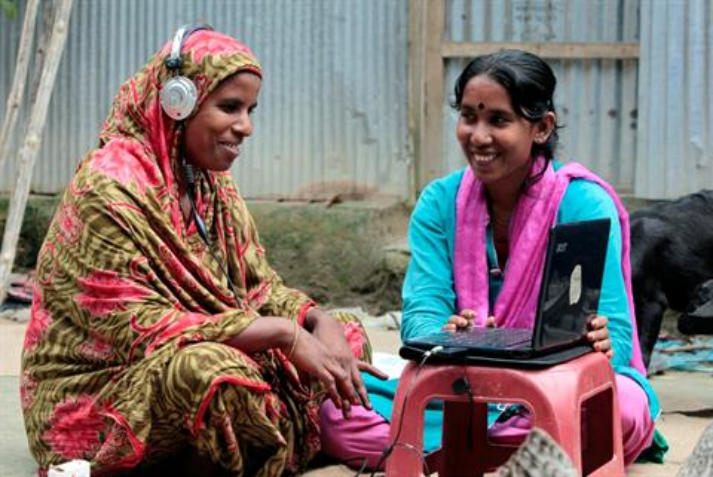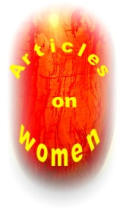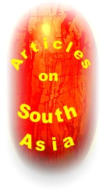Internet rolls into Bangladesh villages on a bike







‘Knowledge is power’





WEB PAGES
OUR OFFERING
UPLOADED ITEMS
OUR EMAIL
kri200@womenspowerbook.org
QUESTION
Raise the vol to listen to the
lady airing awe @ the SINGLE author encyclopedia
World’s
encyclopedic
knowledge
compacted
in
your
hand
JHARABARSHA, Bangladesh: Amina Begum had never seen a computer until a few
years ago, but now she's on Skype regularly with her husband. A woman on a bicycle
brings the Internet to her.
Dozens of "Info Ladies" bike into remote Bangladeshi villages with laptops and Internet
connections, helping tens of thousands of people - especially women - get everything
from government services to chats with distant loved ones. It's a vital service in a country
where only 5 million of 152 million people have Internet access.
The Info Ladies project, created in 2008 by local development group D.Net and other
community organizations, is modeled after a program that helped make cellphones
widespread in Bangladesh. It intends to enlist thousands more workers in the next few
years with startup funds from the South Asian country's central bank and expatriates
working around the world.
D.Net recruits the women and trains them for three months to use a computer, the
Internet, a printer and a camera. It arranges bank loans for the women to buy bicycles
and equipment.
"This way we are providing jobs to jobless women and at the same time empowering
villagers with critical information," said Ananya Raihan, D.Net's executive director.
The women - usually undergraduates from middle-class rural families - aren't doling out
charity. Begum pays 200 takas ($2.40) for an hour of Skype time with her husband, who
works in Saudi Arabia.
Begum smiles shyly when her husband's cheerful face pops up. With earphones in
place, she excitedly tells him she received the money he sent last month. He asks her to
buy farm land.
Even Begum's elderly mother-in-law now uses Skype to talk with her son.
"We prefer using Skype to mobile phones because this way we can see him on the
screen," Begum said, beaming happily from her tiny farming village in Gaibandha district,
120 miles (192 kilometers) north of the capital, Dhaka.
You might also like:
A German Newspaper Says 'Animal Brothels' Are On The Rise As Bestiality
Becomes 'Lifestyle' Choice’
Christian ‘historian’: Allowing women to vote ‘hurts the entire culture and society’
Indian Elections 2014 A Hindu Revolution: Like The Iranians What Made
The Hindus Seek a Revolution?



Empowering Book Newsletter






WOMEN’S POWER: ITS PAST, ITS PRESENT, ITS FUTURE: FEMOCRACY


















